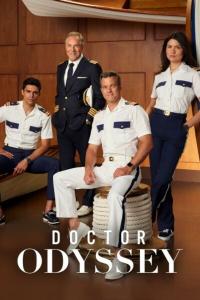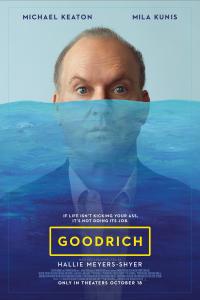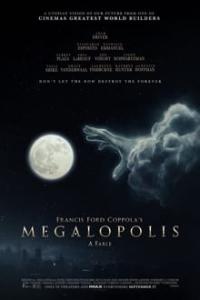Torrent details for "The Great Tours: Iceland" Log in to bookmark
Controls:
Language:
 English
EnglishTotal Size:
7.82 GB
Info Hash:
05221139a23b947a19716383a62ada8f70eab4b5
Added By:
Added:
15-01-2023 03:57
Views:
390
Health:

Seeds:
3
Leechers:
1
Completed:
58
Thanks for rating :
Shechaina777 (5),
Shechaina777 (5),

Description
Iceland has a cultural identity that is tightly intertwined with nature, which makes this land of fire and ice such a remarkableâand unforgettableâplace to visit.
Whether itâs through literature, art, music, food, or history, the Icelandic relationship with nature is profound, and runs as deep as some of Icelandâs glaciers extending below the surface of the sea. In fact, Icelanders donât distinguish between themselves and nature, but instead see themselves as a part of nature. Their intimate relationship with, and dependence on, the natural world has been present since the land was first settledâand it persists to this day.
Though itâs become a popular travel destination for tourists of all types (from those who love hiking through the wilderness to those who simply love a quiet stroll through a museum), thereâs still much that remains unfamiliar to the layperson about Iceland. Consider:
Who first settled this isolated, remote northern islandâand why?
What makes the diversity of Icelandâs plants and animals so remarkable?
How did the environment shape the history of Iceland over the centuries?
What are the folkloric roots of Icelandâs cuisine and other cultural traditions?
How is Iceland today dealing with issues of conservation and sustainability?
Icelandâs fascinating natural and cultural history is indeed unique and The Great Tours: Iceland allows armchair travelers to better appreciate this wonderous region of our planet. It also gives tourists insights into planning the adventure of a lifetime. Designed by behavioral ecologist Professor Jennifer Verdolin of the University of Arizona, these 24 visually stunning lectures take you in and around Iceland, from its bustling cities to its remote towns, from the tops of its glaciers to the depths of its geothermal pools. It also offers an unforgettable introduction to (and helpful resource on) a landscape where nature and humans collide and influence one another, both in the past and in the present.
Explore a Land of Fire and Ice
The astounding geology of Iceland lends the landscape a profound sense of otherworldliness. You begin The Great Tours: Iceland with an in-depth look at the land itself: how it rose from the ocean, its geological importance for both our planet and Icelandic culture, and the stunning features that widen the eyes and drop the jaws of visitors and residents alike. You will take an in-depth examination of features such as:
Volcanoes:Â Hekla is the largest, most active stratovolcano in Iceland. It has been responsible for spewing vast amounts of volcanic ash in the past 8,000 years, having blanketed Europe 50 times. In fact, the heart of Icelandâs formation lies in volcanoes like Hekla. The profuse output of fine pyroclastic material known as âtephraâ is often used as an archaeological tool to provide key dates for both volcanic activity and for dating Icelandâs earliest settlements.
Glaciers:Â Icelandâs glaciers (to say nothing of the ice tunnels and ice caves inside them) are deeply rooted in the countryâs culture and history, with its largest glaciers found in the south and central highlands. While they continue to capture the hearts and minds of photographers, geologists, and mountaineers, most of Icelandâs glaciers went unnamed until the 1890s.
Waterfalls: Itâs hard to choose the most impressive waterfall in Iceland because there are so many out there. (Pro tip: Whenever you see âfossâ at the end of an Icelandic word, itâs denoting a waterfall.) Take Gullfoss, for example, which translates to âGolden Falls.â Itâs the most visited waterfall in Iceland, with two steep drops that are the result of land fractures from volcanic activity and earthquakes.
Hot Springs:Â Given Icelandâs volcanic activity, itâs no surprise thereâs a wealth of hot springs in the country, the majority of which provide heat and power to much of the island in the form of geothermal energy. What you might not realize is that the popular Blue Lagoon isnât a naturally formed hot springâit was created in 1976 by a discharge of brine from a geothermal plant pumped into a nearby lava field.
And Explore Fascinating Flora and Fauna
At first glance, it might seem like much of Iceland is barren: a sea of volcanic rock with little vegetation or animal life. But that couldnât be further from the truth.
The Great Tours: Iceland introduces you to Icelandâs fascinating flora and fauna on land, in the sea, and in the air. This remarkable portrait of natural diversity includes:
Mountain avens are so beautiful among Icelandâs numerous flowering plants that Icelanders voted it to be the national flower;
Oyster plants are edible succulents commonly found in lava fields and traditionally used to treat colds and sore throats;
Atlantic puffins are Icelandâs iconic seabird with black coloring above and white below, best spotted along the Vestmannaeyjar archipelago in August;
Arctic foxes are the top land predator in Iceland. Their fur seasonally changes color to better camouflage them while hunting; and
Greenland sharks can live up to 500 years and were hunted for their liver oil to fuel the streetlamps of 18th-century Iceland.
Travel through the Story of Iceland
âIcelandâs connection to nature is both beautiful and complicated,â says Professor Verdolin. âThe same can be said of Icelandic culture and history.â
Throughout The Great Tours: Iceland, youâll learn about Icelandâs history and culture, from its earliest settlements, and the deforestation settlement brought about, to its epic poetry, which references locations you can still visit today. Youâll also learn about Icelandâs latest national efforts to promote carbon neutrality and the inner workings of the countryâs tourism infrastructure.
Along the way, youâll see how everything is connected in Iceland and how it continually hearkens back to nature. You will:
Learn what fermented shark is and why locals eat it;
Discover what Icelandic music sounds like;
Consider historical debates over hunting and fishing rights;
Develop an ear for contemporary Icelandic literature; and
Appreciate the islandâs vibrant mural and street art scene.
Whatâs more, Professor Verdolin grounds all these geological, biological, historical, and cultural insights into a comprehensive guide for anyone interested in planning a trip to this unique country. Follow her around the islandâfrom the capital city of ReykjavĂk to the cusp of the Arctic Circleâand explore some of the most popular adventures a visitor can have. Youâll get tips on what animals to see (and when), the best spots for hiking and sightseeing, overlooked gems that are well worth your time, and so much more.
And if youâd prefer to travel from the comfort of home, donât worry. This series, in true Great Tours fashion, feels just as immersive as any feet-on-the-ground visit.
A Toast to Iceland
By the conclusion of The Great Tours: Iceland, youâll have a greater familiarity withâand appreciation forâa country where nature, humans, volcanoes, glaciers, and a changing climate all collide and influence one another.
And in coming to see the true depth and richness of Iceland, youâll find yourself in agreement with JĂłnas HallgrĂmsson, one of Icelandâs most beloved poets, whose 1839 poem âA Toast to Icelandâ reads:
Our land of lakes forever fair
below blue mountain summits,
of swans, of salmon leaping where
the silver water plummets,
of glaciers swelling broad and bare
above earthâs fiery sinewsâ
the Lord pour out his largess there
as long as earth continues!














































